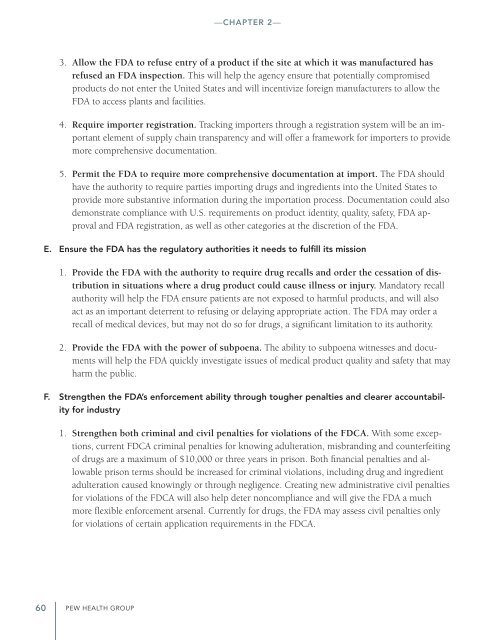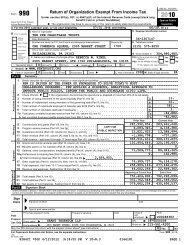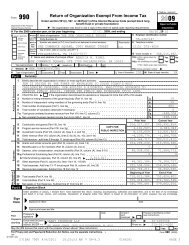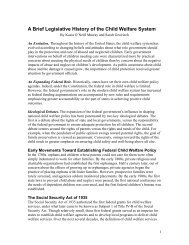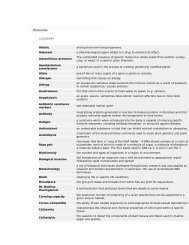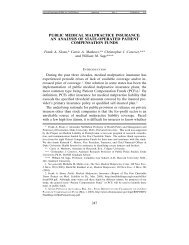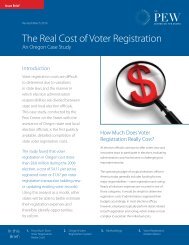After Heparin: - The Pew Charitable Trusts
After Heparin: - The Pew Charitable Trusts
After Heparin: - The Pew Charitable Trusts
You also want an ePaper? Increase the reach of your titles
YUMPU automatically turns print PDFs into web optimized ePapers that Google loves.
—Chapter 2—<br />
3. Allow the FDA to refuse entry of a product if the site at which it was manufactured has<br />
refused an FDA inspection. This will help the agency ensure that potentially compromised<br />
products do not enter the United States and will incentivize foreign manufacturers to allow the<br />
FDA to access plants and facilities.<br />
4. Require importer registration. Tracking importers through a registration system will be an important<br />
element of supply chain transparency and will offer a framework for importers to provide<br />
more comprehensive documentation.<br />
5. Permit the FDA to require more comprehensive documentation at import. <strong>The</strong> FDA should<br />
have the authority to require parties importing drugs and ingredients into the United States to<br />
provide more substantive information during the importation process. Documentation could also<br />
demonstrate compliance with U.S. requirements on product identity, quality, safety, FDA approval<br />
and FDA registration, as well as other categories at the discretion of the FDA.<br />
E. Ensure the FDA has the regulatory authorities it needs to fulfill its mission<br />
1. Provide the FDA with the authority to require drug recalls and order the cessation of distribution<br />
in situations where a drug product could cause illness or injury. Mandatory recall<br />
authority will help the FDA ensure patients are not exposed to harmful products, and will also<br />
act as an important deterrent to refusing or delaying appropriate action. <strong>The</strong> FDA may order a<br />
recall of medical devices, but may not do so for drugs, a significant limitation to its authority.<br />
2. Provide the FDA with the power of subpoena. <strong>The</strong> ability to subpoena witnesses and documents<br />
will help the FDA quickly investigate issues of medical product quality and safety that may<br />
harm the public.<br />
F. Strengthen the FDA’s enforcement ability through tougher penalties and clearer accountability<br />
for industry<br />
1. Strengthen both criminal and civil penalties for violations of the FDCA. With some exceptions,<br />
current FDCA criminal penalties for knowing adulteration, misbranding and counterfeiting<br />
of drugs are a maximum of $10,000 or three years in prison. Both financial penalties and allowable<br />
prison terms should be increased for criminal violations, including drug and ingredient<br />
adulteration caused knowingly or through negligence. Creating new administrative civil penalties<br />
for violations of the FDCA will also help deter noncompliance and will give the FDA a much<br />
more flexible enforcement arsenal. Currently for drugs, the FDA may assess civil penalties only<br />
for violations of certain application requirements in the FDCA.<br />
60<br />
<strong>Pew</strong> Health Group


